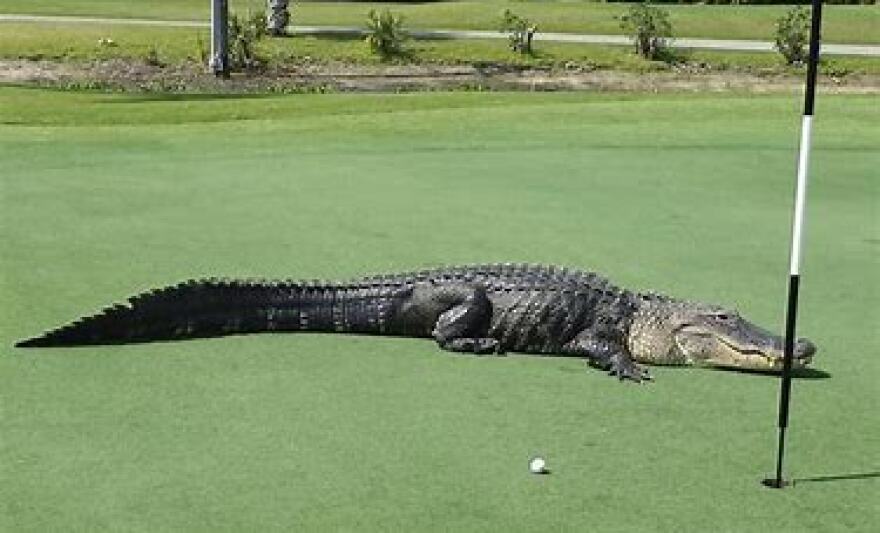Spring is here, and it’s a good time to remember tips for living with alligators, which are starting to become more active and visible.
The American alligator is Florida’s state reptile, found in fresh water lakes, ponds, swamps and slow-moving rivers. They’re also one of the state’s conservation success stories, says Becca Nelson at the state Fish and Wildlife Conservation Commission.
“We have a very robust population of alligators -- probably about over 1.3 million; they’re found in all 67 counties here in Florida,” said Nelson. “At one time, there was an issue with the population, but not today. Alligators are in a really good space.”
Alligator bite incidents resulting in serious injuries to people are rare in Florida, and Fish and Wildlife wants to keep it that way. But Nelson says they need the cooperation of both residents and visitors.
“First and foremost, if you see one just keep your distance; to know it’s there but keep a good distance away from it,” Nelson says. “Swimming in designated swimming areas and keeping those times of swimming during daylight hours. Not during dusk or dawn, because they’re more active during those times.”
As the temperatures get warmer, alligators become more active. Their metabolism increases and they begin seeking prey. Never, ever feed an alligator. Not only is it dangerous, it’s a violation of state law and the reptiles can overcome their natural wariness and learn to associate people with food. Nelson says along with humans, household pets and livestock need protection.
“Cats and dogs resemble normal prey for alligators,” says Nelson. “If you’re going to walk them, just keep them away from the water’s edge, [and] maybe keep them on a short leash.”
If a gator wanders into your yard, take no action. Instead, contact the statewide nuiscence alligator program – SNAP -- at (866) FWC-GATOR.

“And somebody would speak to them over the phone, especially if it’s a nuiscence alligator that they fear might be dangerous to people, pets, or property,” Nelson says. “Don’t take matters into your own hands.”
The alligator hunting season runs Aug. 15 – Nov. 1 each year. Approximately 6,000 alligator harvest permits are available, allowing for two alligators each. Random drawings are held to distribute all available permits.
Alligators are also at their most dangerous, says FWC’s Becca Nelson, when they’re protecting their young.
“Mating typically occurs in May or June so, during the springtime – not just now when temperatures are warming up but well into the spring and well into the summer months – alligators will have a greater visibility. So just keep a good distance away from that as well.”
More information about alligator do’s and don’ts can be found at www.MyFWC.com/Alligator.

